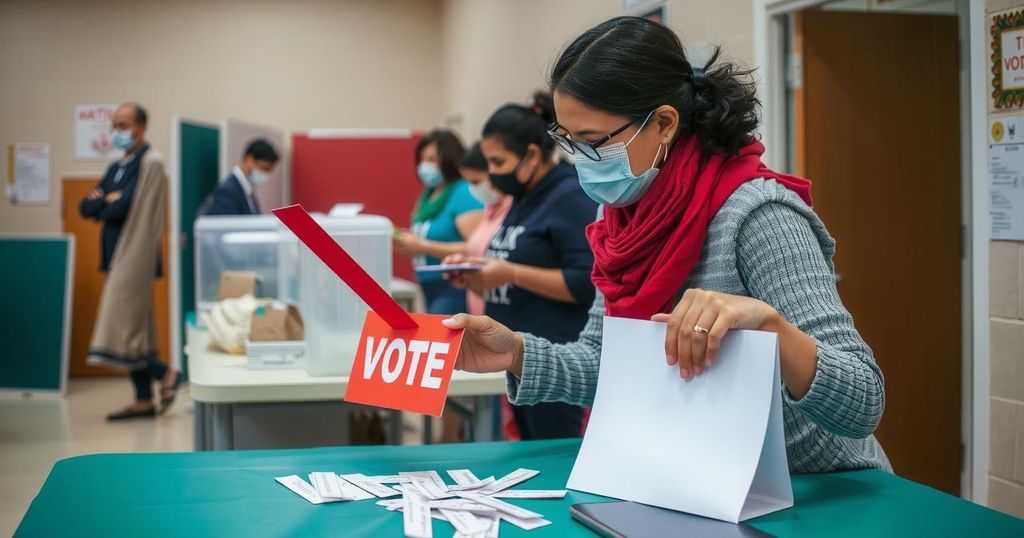Chad is conducting legislative and local elections amid boycotts from opposition parties, which claim the process is undemocratic. The elections, presented by the government as a move towards democratic transition, occur against the backdrop of violence from Boko Haram and civil unrest. Mahamat Idriss Deby’s administration faces scrutiny for its authoritarian tendencies, while a significant media blackout and recent humanitarian issues complicate the electoral atmosphere.
Chad is engaging in legislative and local elections on Sunday, which the administration of President Mahamat Idriss Deby Itno characterizes as a significant stride towards democratic transition. However, opposition factions label the elections a mere facade, calling the process a “masquerade.” This electoral event unfolds amid persistent threats from the jihadist group Boko Haram in the Lake Chad region and the conclusion of a military agreement with France, Chad’s former colonizer.
President Mahamat Deby, who assumed power in 2021 following the death of his father, Idriss Deby Itno, has faced allegations of governance marked by autocracy and repression. The past legislative elections have not occurred since 2011, with several postponements attributed to jihadist activities, economic challenges, and the COVID-19 pandemic. The transitional parliament was appointed via presidential decree post-Idriss Deby’s death.
As opposition parties choose to boycott the elections, accusations of electoral malpractice abound, with Succes Masra, leader of the Transformers party, condemning participation as endorsing a form of “legislative apartheid.” Conversely, Minister of Infrastructure Aziz Mahamat Saleh maintains that the elections will provide a mandate for the president to implement his policies. Meanwhile, academic Professor Ahmat Mahamat Hassan describes the elections as legitimizing a governing power reminiscent of a dynasty amid widespread internal and external dissent.
The conduct of this election is further complicated by a media blackout, as journalists strike in response to governmental restrictions on press freedoms. Chad, although rich in oil resources, remains one of the poorest nations as per the United Nations Human Development Index, ranking near the bottom. The nation recently faced devastating rains that resulted in 500 fatalities and displaced two million individuals.
Chad is facing a critical political moment as it conducts its first national elections in over a decade. The elections, aimed at revitalizing governance structures in a nation long ruled by the Deby family, come under the shadow of significant challenges, such as violence from Boko Haram and civil unrest. President Mahamat Idriss Deby Itno, who took office after his father’s death, continues to navigates claims of electoral fraud and repression from opposition parties. These elections are intended to transition the country towards democracy, yet skepticism remains prevalent among the populace and political critics who perceive them as legitimizing an undemocratic regime.
In conclusion, Chad’s upcoming legislative and local elections signify a crucial yet contentious attempt at democratic transition under President Mahamat Idriss Deby Itno. While the government promotes these elections as an essential step forward, the opposition views them as a mere illusion of democracy. The stark divide between the ruling party and opposition perspectives underscores the difficult path Chad faces in achieving true political reform and stability in the wake of persistent violence and humanitarian crises.
Original Source: www.barrons.com






